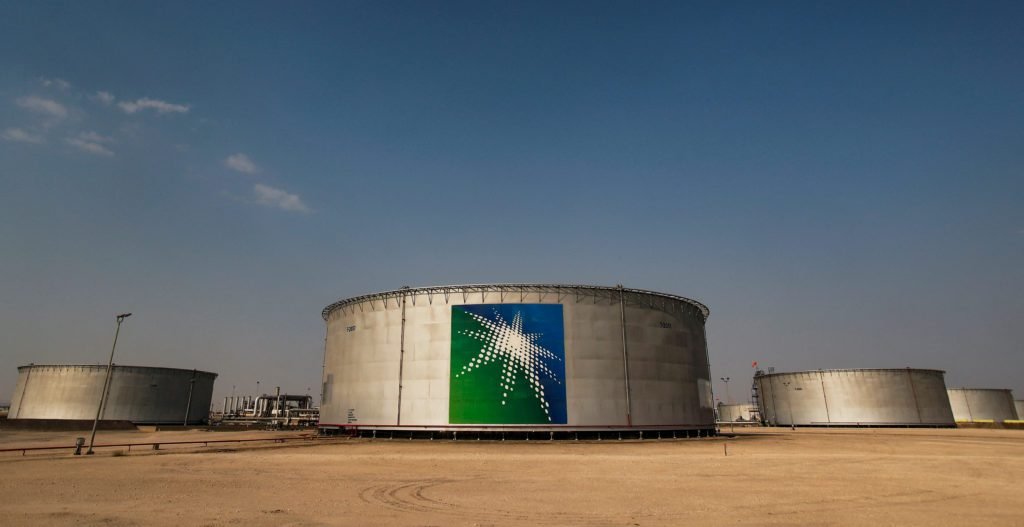Saudi Arabia’s Energy Shift: Forex and Oil Traders’ Guide
As an energy consumer, Saudi Arabia’s electricity sector almost matches the combined oil consumption of countries like Italy, Spain, or Turkey. Although the kingdom guzzles massive amounts of natural gas, it still burns almost 1.4 million barrels of oil per day in the summer when its electricity grid is operational and desalting water. All this is now set to change as Riyadh recalibrates its energy strategy.
The major takeaways are:
1. Huge Demand for Energy
- Consumption of Oil: For instance, in the summertime, electricity in Saudi Arabia consumes close to about 1.4 million barrels of oil per day. This emerges as the country being one of the largest consumers of oil with regard to the electricity sector in the world, similar to the whole of Italy, Spain, or Turkey in total oil consumption.
- Natural Gas Consumption: Even though there is very high oil consumption, natural gas also forms part of the energy mix of the kingdom. Natural gas is made use of mainly in electricity generation.
2. Rising Demand for Electricity
- Subsidy Cuts: The reductions in government subsidies for electric usage in 2016 and 2018 helped control the demand for electricity for a short while. Of course, as the country diversifies its economy, boosts industry, enhances tourism, and constructs new towns, the demand for power soars again from the year 2021.
- Peak Demand Growth: The growth in demand within Saudi Arabia is especially high, where every year most of the stakeholders tend to report that summers are hotter than the previous ones. Other new sectors include data centers, which add to the demand emanating from the industrial and energy-intensive sectors. The kingdom’s peak demand increased to 9.5 percent this year during the first half.
3. Oil-Fueled Power Generation
- Environmental Impact: Electricity from burning oil is tremendously polluting. It rains the atmosphere with sulfur oxides and, importantly, contributes to the increase of carbon dioxide emissions. This will, therefore, remain a challenge toward the net-zero increase in carbon emissions that Saudi Arabia targets to be achieved by 2060.
- Seasonal Fluctuations: Demand for oil in the Kingdom varies remarkably between the winter and summer months, by almost 1 million barrels per day. Such seasonal fluctuation is the issue for the Saudi role with the most important management of the oil markets in OPEC.
- Dependence on Imports: The Kingdom has been importing significant amounts of discounted Russian fuel oil to supplement peak summer demand, which further underlines its helpless position in needing more sustainable energy sources.

4. Strategic Shift Towards Gas and Renewables
- Rising Gas Production: Saudi Arabia will remain enthusiastic about its investment in new gas projects. One such project is in the Jafurah gas field, which by the year 2030, is expected to reach a minimum capacity of 16 bcf/d. The country aims at reducing its use of oil to produce power, as evidenced below.
- Renewables Build-out: After some false starts, the build-out of renewables in Saudi Arabia is now beginning to show a little pace. Nearly 13 GW of renewable capacity—almost all of it solar—could be in play by the end of next year, with more than 100 GW targeted by 2030.
- Cost-effective Solar Power: There is an oversupply of the modules used to generate solar power all over the world, which reduces their cost to record lows, making solar power even cheaper than the low-cost oil and gas from Saudi Arabia. So, it’s a trend that forex traders and investors would be much interested in, since a whole new dynamic of energy prices and markets could get redefined when the shift to renewables is in full force.
5. Energy Storage and Efficiency Measures
- Energy Storage Solutions: The more pressing issue among these is fluctuating solar energy, for which the Kingdom is investing in new projects that store extra electricity by pumping water uphill; this can later be used to generate power as required. Greater, more sustainable ways of storing energy will be required to ensure the adequacy of the energy supply.
- Energy Efficiency Programs: Saudi Arabia has launched various programs to promote energy efficiency, including district cooling systems, to regulate the use of power. However, power still remains under-priced and no such concept of time reflecting the cost in case of tariffs. Repercussions of the event, wherein ForexFactory and BabyPips constituents have a special interest in trading within an energy segment, will be keenly watched as the effects of this event would pan out over the long term.
- Potential Nuclear Projects: While the government of Saudi Arabia has not included nuclear power in their 2030 vision, there are interests in entering nuclear power. In that case, in the mid-next decade, nuclear power plants may come online and therefore help add power to the country’s energy mix.
6. Implications for the Forex Market: Forex and Oil Traders’ Guide
- Impact on Oil Prices: Even if Saudi Arabia were to start changing its cocktail of energy sources to move away from oil for power generation, that would reflect on world oil prices. This will be of interest to many Forex traders on platforms like MetaTrader. Therein, reduced domestic oil demand would reduce seasonal swings in demand and, therefore, change the Saudi calculation on oil production, which feeds back into world markets.
- Trading Opportunities: The switch to renewables and gas is set to unlock new potential in the trading opportunities arising out of the forex markets. Following the energy sector can be the key that enables traders to predict the movement of a currency, especially those of energy-exporting nations.
By 2030, even if these targets were not fully met, the energy landscape in Saudi Arabia will be very much different, saving money, lowering emissions, and seriously placing their goals towards net-zero—with some understanding of such transitions, a lot more than important for any forex trader or investor, as it could have a strong influence on global markets and trading strategies.

Add a Comment
You must be logged in to post a comment